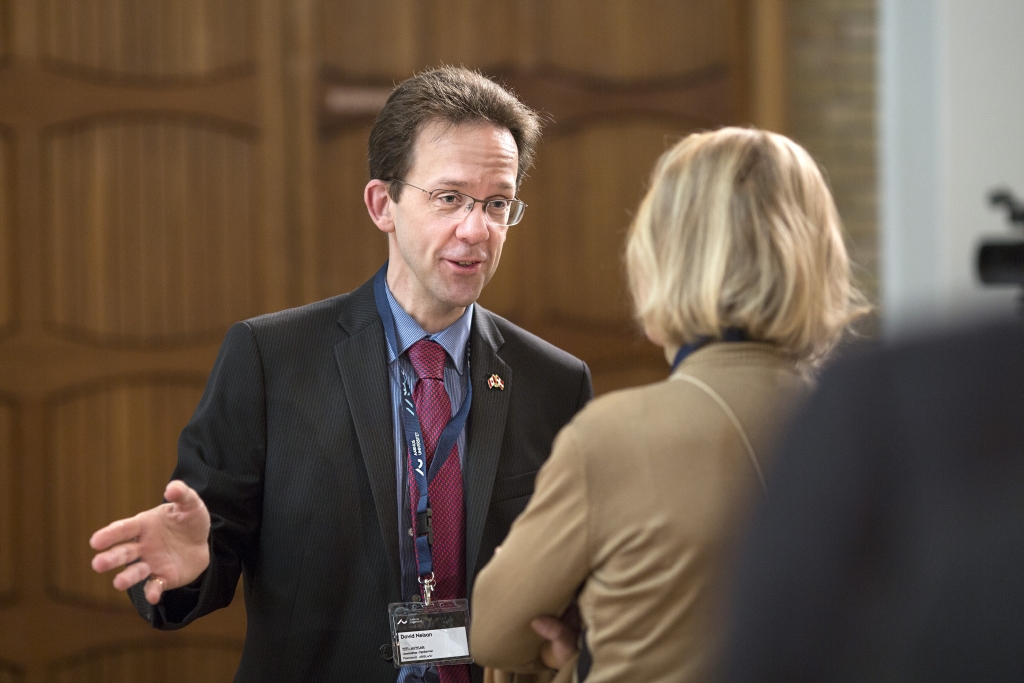Semper Ardens grant for research into disruption and globalisation
The Carlsberg Foundation has granted DKK 15 million to a new Semper Ardens research project at Aarhus BSS. The project aims to examine how shifts in the markets affect companies, employees and society.

Robots. Disruption. Globalisation. For some people, these words represent doomsday scenarios of mass employment and growing inequality. For others, they represent new opportunities, increasing productivity and thus increased wealth.
Regardless of how you interpret the words, there is insufficient knowledge of how individuals, companies and society as a whole are affected by the constant movements and changes of the market economy that have taken place within the past 200 years.
A need for knowledge instead of fear
The new research centre FIND (Firms and INdustry Dynamics) at Aarhus BSS (Aarhus University) aims to address this issue. Backed by a six-year grant from the Carlsberg Foundation, the centre will conduct research into how the movements occur, how they interfere with each other and not least what the effect of the movements are.
“With robots, disruption and globalisation on the agenda, top politicians and leading opinion-makers in market economic superpowers such as the US and the UK are now advocating against free trade and for increased protectionism. We’d like to ensure that this discussion is based on knowledge rather than fear,” says Professor and Centre Director at FIND Philipp Schröder, the Department of Economics and Business Economics at Aarhus BSS.
Economic Darwinism
“Changes and competition in the markets are the foundation for the increased productivity and thus the rapidly increasing levels of wealth that have occurred during the past 200 years. From the birth of Christ and until approx. 1850, the global average wealth per capita remained the same, but since the middle of the 19th century, the wealth per capita has multiplied by ten - even though the world’s population has increased by a factor of 5.5 during the same period. This is due to new technologies and globalisation. So why are we suddenly so afraid?” asks Philipp Schröder.
By combining extensive and detailed data (Big Data) on individual and company level, it is possible to carry out completely new empirical analyses of the industrial shifts. And by incorporating these movements into macroeconomic models it will, among other things, be possible to conduct political experiments and predict the possible economic consequences of various initiatives. Such as the introduction of a universal basic income or a robot tax.
"Market forces also represent economic Darwinism. Companies that are not up to speed may be driven out of business and be forced to close and lay off employees. However, there are also winners - companies that have created new jobs or new technologies. It can be difficult to see the overall consequences and derived effects of these changes. That’s why we need to study the tools and analyses that can provide this overview,” says Philipp Schröder.
The fourth industrial revolution
With the grant from the Carlsberg Foundation, the centre’s operating budget is secured for the next six years, and the foundation’s chairman Flemming Besenbacher is convinced that the new centre will contribute to a much more balanced debate about the challenges and opportunities that Denmark and the rest of the world are facing with the so-called fourth industrial revolution.
“We have to realise that some view new technologies and increased globalisation with fear and trepidation. Professor Philipp Schröder has brought together a strong national and international research team, so I have high expectations for the FIND project. It has the potential to identify causal relationships and propose new solutions to some of the global challenges that we face in the coming years with the introduction of new technologies. It’s important that the debate and the argumentation are based on knowledge and facts – thereby countering fake news and false claims about the negative consequences of disruption,” says Flemming Besenbacher
For more information, please contact:
Centre Director (FIND), Professor Philipp Schröder, Aarhus BSS: +45 30 22 91 23. Email: psc@econ.au.dk
Chairman of the Carlsberg Foundation, Professor Flemming Besenbacher: Email: f.besenbacher@carlsbergfoundation.dk
Facts about FIND – Firms and INdustry Dynamics
Research centre at the Department of Economics and Business Economics, Aarhus BSS at Aarhus University.
Centre Director: Professor Philipp Schröder.
Objectives: To provide basic research by analysing and developing tools for the understanding of shifts in market economies caused by globalisation and new technology as well as the effects of these shifts on both companies, employees and society as a whole.
Financing:
- The Carlsberg Foundation: DKK 15 million
- Aarhus BSS/Department of Economics and Business Economics: DKK 17 million
Period: 2018-2023.
Facts about the Carlsberg Foundation’s Semper Ardens grants:
The Carlsberg Foundation's "Semper Ardens grant" is given to leading, established researchers within the humanities and social sciences who have a "Semper Ardens" (= passionate, constantly burning) approach to their research and a project that aims to publish ground-breaking research.
The grant for FIND is the first within the field of economics.
